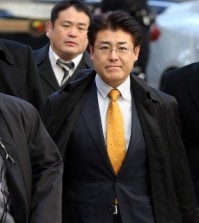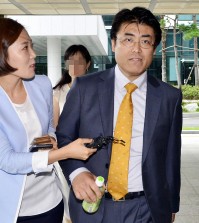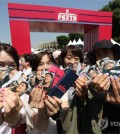- California Assembly OKs highest minimum wage in nation
- S. Korea unveils first graphic cigarette warnings
- US joins with South Korea, Japan in bid to deter North Korea
- LPGA golfer Chun In-gee finally back in action
- S. Korea won’t be top seed in final World Cup qualification round
- US men’s soccer misses 2nd straight Olympics
- US back on track in qualifying with 4-0 win over Guatemala
- High-intensity workout injuries spawn cottage industry
- CDC expands range of Zika mosquitoes into parts of Northeast
- Who knew? ‘The Walking Dead’ is helping families connect
Seoul court to review travel ban on Japanese reporter
SEOUL (Yonhap) — A Seoul court will likely review later this week whether to lift the travel ban on a Japanese reporter accused of defaming President Park Geun-hye, court officials said Wednesday.
Tatsuya Kato, former head of the Seoul bureau of Japan’s Sankei Shimbun newspaper, is standing trial for defamation after reporting rumors in August that Park might have been with a man when a South Korean ferry sank off the southwest coast in April, killing more than 300 people.
According to court officials, a hearing is due on Friday, with the results expected as early as later in the day.
The controversial travel ban was imposed on Kato in August and was renewed for another three months by the Ministry of Justice last month. Last week, Kato filed a lawsuit with the Seoul Administrative Court to have the measure canceled.
Even if the ban is lifted, Kato would still have to return to South Korea to continue standing trial.
If he fails to appear in court, South Korea will issue an arrest warrant and ask Japanese law enforcement to hand him over.
In an online article dated Aug. 3, Kato cited a column carried by the Chosun Ilbo a month earlier, in which South Korea’s largest-circulation newspaper said Park’s whereabouts were unknown for seven hours. The news sparked rumors in South Korea’s financial community that she may have been with a man, Kato reported.
The presidential office refuted the claim, saying that Park “was inside the presidential compound.”
Kato’s indictment has sparked fierce backlash from Japan, which claims the move suppresses freedom of speech and discriminates against foreign reporters.














